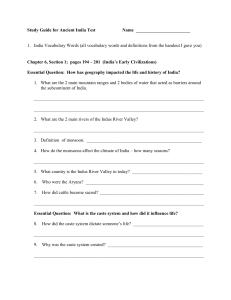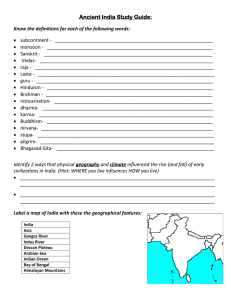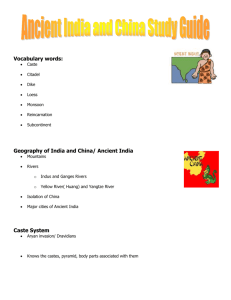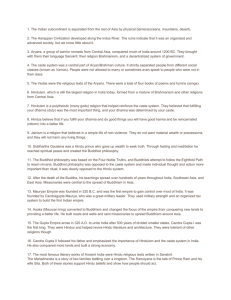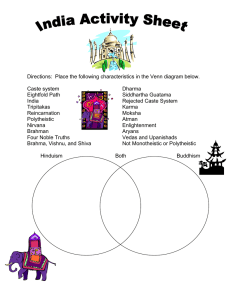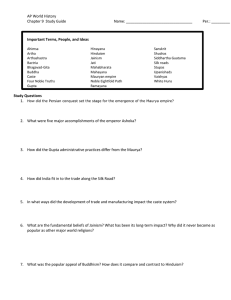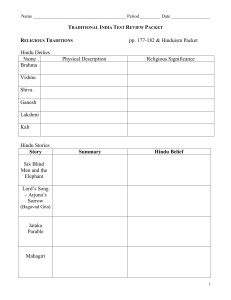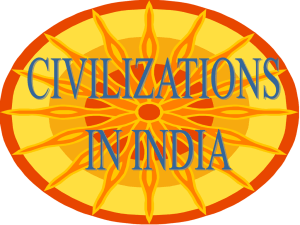Study Guide for India Test
advertisement
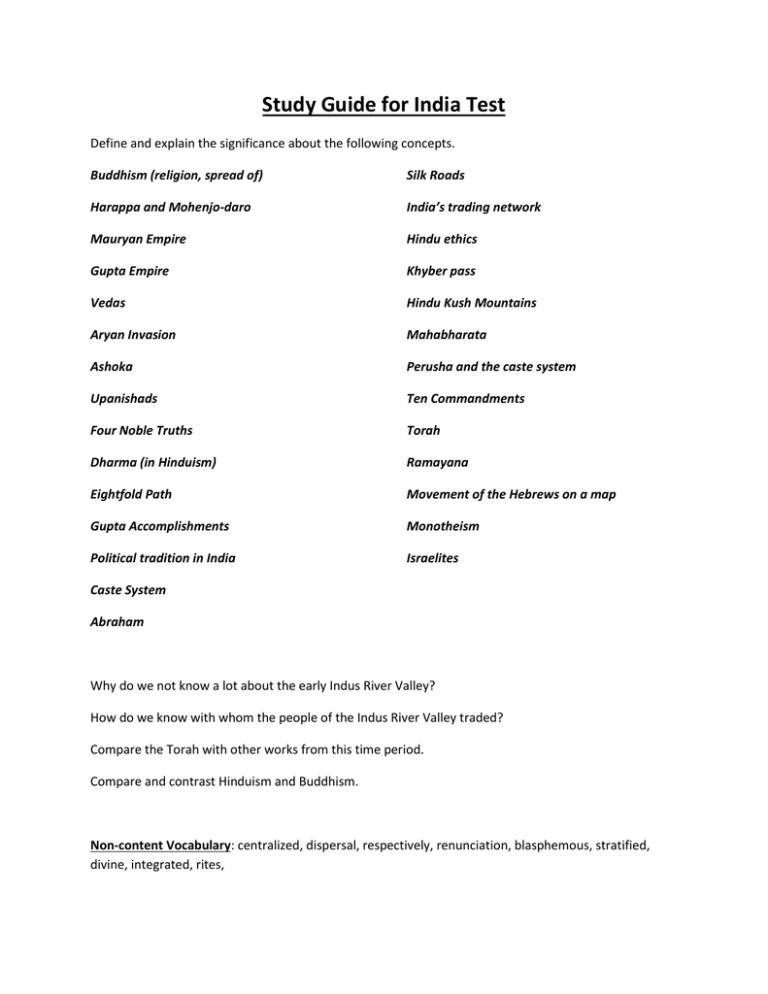
Study Guide for India Test Define and explain the significance about the following concepts. Buddhism (religion, spread of) Silk Roads Harappa and Mohenjo-daro India’s trading network Mauryan Empire Hindu ethics Gupta Empire Khyber pass Vedas Hindu Kush Mountains Aryan Invasion Mahabharata Ashoka Perusha and the caste system Upanishads Ten Commandments Four Noble Truths Torah Dharma (in Hinduism) Ramayana Eightfold Path Movement of the Hebrews on a map Gupta Accomplishments Monotheism Political tradition in India Israelites Caste System Abraham Why do we not know a lot about the early Indus River Valley? How do we know with whom the people of the Indus River Valley traded? Compare the Torah with other works from this time period. Compare and contrast Hinduism and Buddhism. Non-content Vocabulary: centralized, dispersal, respectively, renunciation, blasphemous, stratified, divine, integrated, rites, Study Guide for India Test Define and explain the significance about the following concepts. Buddhism (religion, spread of) Silk Roads Harappa and Mohenjo-daro India’s trading network Mauryan Empire Hindu ethics Gupta Empire Khyber pass Vedas Hindu Kush Mountains Aryan Invasion Mahabharata Ashoka Perusha and the caste system Upanishads Ten Commandments Four Noble Truths Torah Dharma (in Hinduism) Ramayana Eightfold Path Movement of the Hebrews on a map Gupta Accomplishments Monotheism Political tradition in India Israelites Caste System Abraham Why do we not know a lot about the early Indus River Valley? How do we know with whom the people of the Indus River Valley traded? Compare the Torah with other works from this time period. Compare and contrast Hinduism and Buddhism. Non-content Vocabulary: centralized, dispersal, respectively, renunciation, blasphemous, stratified, divine, integrated, rites,

